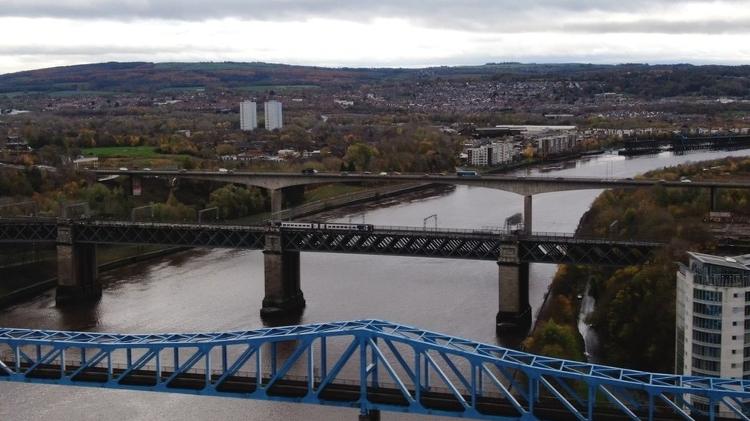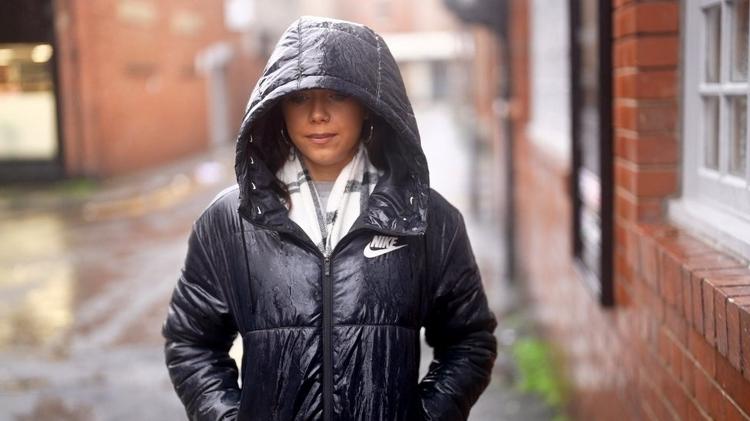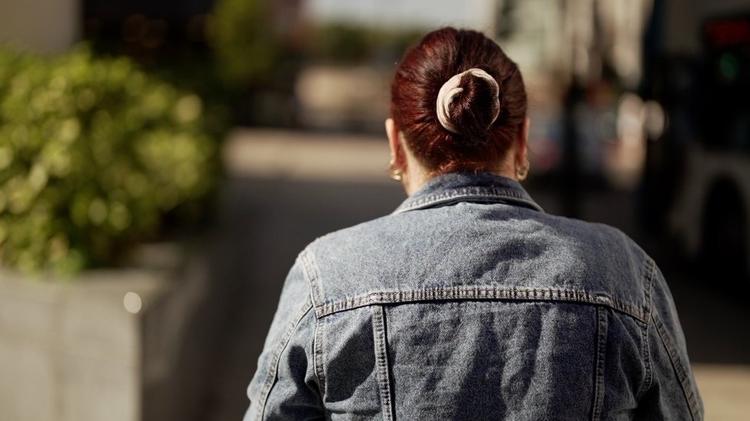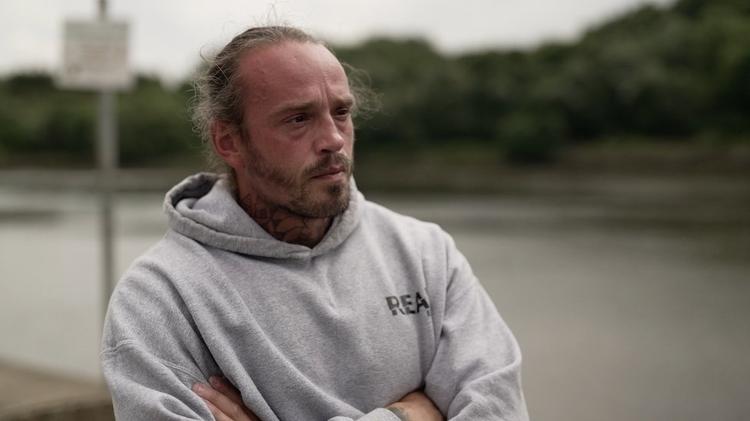A young woman used to transport drugs by train in the UK by drug traffickers tells her life story.
Every week, children cross England by bus and train carrying drugs as part of their drug trafficking operation.
BBC News has worked for months at an organization aimed at helping children at risk of falling into the hands of cartels, hearing stories of youth abuse and the suffering of their families, and learning what it takes to be liberated.
Three people agreed to tell their stories about these exploitation and drug trafficking networks. Check below.
Nicole: “No one asked why I wasn’t at school”
“I’ve seen a lot of things, I’ve seen people being attacked with boiling water,” says Nicole, who was just 11 years old and was recruited by a gang of drug dealers.
“I’ve seen people get stabbed over a stupid misunderstanding over things like £20.”
Before joining the gang, he slept on a mattress on the floor and took a shower at school whenever he got the chance.
“They’re finding you,” says Nicole, 18, from the drug trafficking networks.
“You’re not the one who found them.”
The gang promised her a bed and new clothes, in addition to helping her mother pay the bills. She says she saw her new friends with “nice sneakers, nice clothes and makeup” and felt pretty jealous.
“I was at the point where I would do anything to get it,” he says.
Nicole was transporting drugs across the country from Newcastle.
“I was so naive,” he says.
“I was given an address, date, time and train ticket.”
But the gang’s promises were never fulfilled.
“I never got to the point of owning a bed. I never got to the point of buying new clothes.”
Instead, he entered the world of violence and child abuse.
On a trip south, Nicole remembers crying in the bathrooms of every train station she stopped.
“When I got there, it didn’t go as planned,” he says.
“I had to do a lot of things I didn’t want to do to get out of this situation alive. I guess I wouldn’t have done it if I didn’t have to meet the sexual, physical and mental demands. Be here today.”
The violence he witnessed made him work for the gang. He was warned that he would “pay the price” if he didn’t do what he wanted.
But to this day, the 11-year-old cannot understand why no adult has intervened as she travels alone across the country by train and bus and skips school.
“They didn’t see me, they couldn’t find me, they didn’t ask why I wasn’t at school, they didn’t ask why I wasn’t with my parents. That’s what impressed me the most,” she says.
“Why didn’t anyone intervene before?”
After two years of violence, abuse, fear and broken promises, Nicole has an opportunity to escape.
A teacher reached out to him who gave him a bath at school and paid for his meal after school.
One day, 13-year-old Nicole arrived there after she had a miscarriage.
“She noticed and took me to the hospital. She was fed up. I had reached my limit,” Nicole says.
“I can trust this person. He needs to know that I’m not okay.”
Now, five years after she escaped, Nicole is studying at university to make a better life.
She hopes to have a home and family and says she wants to be the kind of person who doesn’t look away when someone needs help.
She wants to give hope to others who may still be frightened and exploited.
“If you’re still living and breathing, there’s a way out. It can always end for the best.”
Sarah: I can’t protect my kids
Sarah (not her real name) hopes her teenage son will become one of the minors who can escape drug gangs.
He has disappeared more than 50 times this year. And now he has no idea where he is.
“It was constantly out of control, gone for weeks at a time,” he says.
“I don’t know if he’s alive or dead. With whom? Is he okay?
He doesn’t know what to say when his other children ask where his brother is.
“He’s my little boy, I can’t protect him and he’s out there,” she says.
“This is something I always promised when I had children to protect and love them as best I could. And I can’t do that.”
Sarah says it’s been nearly a year since her son, now 16, got involved in the drug gangs operating in the area.
He says he has noticed some obvious signs that something is wrong. He started hanging out with masked gangs, all dressed in black.
But Sarah says she also noticed more changes in behavior.
“She backed off and started arguing. She closed in. Then she obviously didn’t connect with me at all,” she explains.
For Sarah, she must follow the gang’s instructions or there may be “family repercussions”.
“He’s a scared little boy,” he says.
“I know him and he’s changed a lot. Sometimes he comes and hugs us for no reason. I know he’s scared. But he has to follow orders from his[gang]elders.”
With the help of staff from Edge North East, a British organization specializing in counseling children who have been severely abused, she hopes to find a way out for her son.
But for now she is missing and Sarah is still waiting.
Andy: “No child is hopeless”
“I’m stuck in this nest. I don’t know how to get home, can you take us home?”
This is the kind of phone call Andy and the Edge North East team often get.
One night, she and a colleague took a 10-hour long-distance trip after receiving a similar call.
“Without any hesitation, we got in the car, drove and picked them up,” he says.
Andy is not someone who fits the traditional nine-to-five job. Tall and tattooed, he rides a Harley-Davidson in Newcastle as he tries to gain the trust of the youngsters.
“(Because) they don’t have anyone around them to trust.”
“Every young person who gets involved will be a victim of violence at some point,” he said.
“Battered, stabbed, whatever. To be honest, it’s absolutely horrible to think about.”
Edge North East works with young people who are at risk of being duped and forced to travel around the country to distribute drugs.
“Years ago you wouldn’t have thought of using a kid to sell drugs. But now they don’t care, they don’t care who they use as long as they can fill their own pockets with money.” says Andy.
“This is very sad.”
He says people label the behavior of the children he works with negatively, without looking at the reasons behind their actions.
“I wish some people would open their eyes and look at them like children. And things might be a little different,” she says.
“These are missing youth. There is something in these young people’s lives that always pushes them to do what they’ve been doing. That’s what people have to look at and ask themselves what they’re going through.”
Andy says that beautifying gang culture on social media didn’t help, but Edge North East’s connections with young people made a real difference.
“Lives are changing,” he says.
“No child is outgoing.”
– This text was published at https://www.bbc.com/portuguese/internacional-63870862.
source: Noticias
Mark Jones is a world traveler and journalist for News Rebeat. With a curious mind and a love of adventure, Mark brings a unique perspective to the latest global events and provides in-depth and thought-provoking coverage of the world at large.



